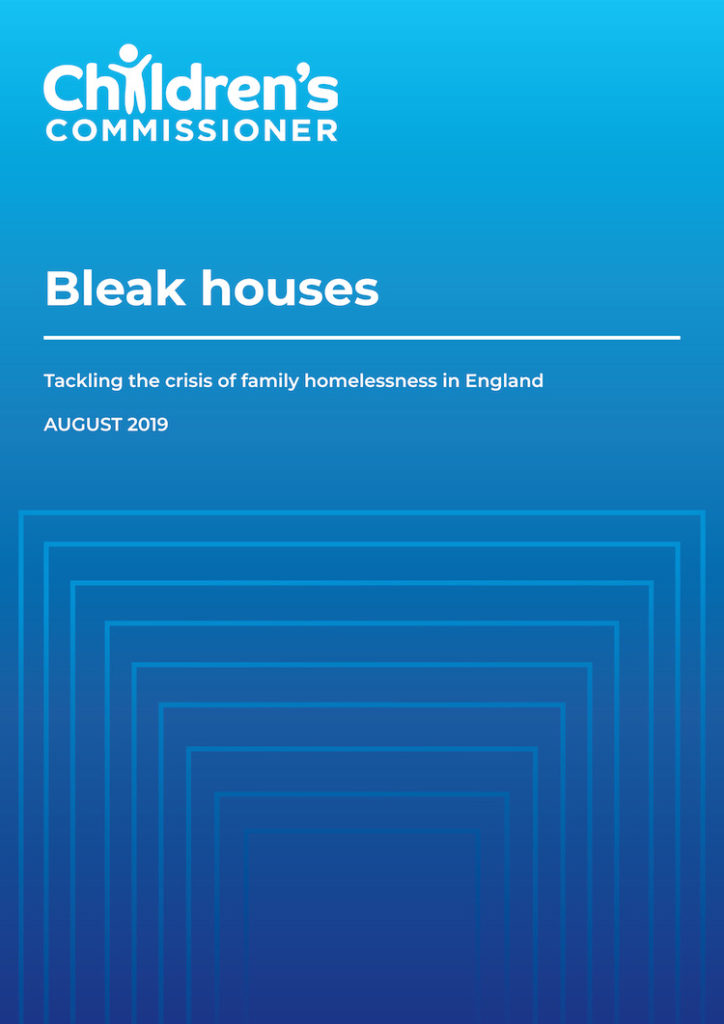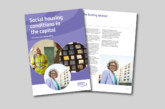Children’s Commissioner releases report on the plight of homeless children, entitled Bleak Houses, which addresses the need to tackle the crisis of family homelessness in England.
The report highlights the scale of the problem and includes case studies from people who have experienced homelessness and been forced to live in inadequate temporary accommodation for far too long. It explores how the housing shortage and welfare reform are driving the crisis and the risks to children presented by poor quality temporary accommodation.
In the Forward, Children’s Commissioner for England Anne Longfield, OBE, said: “Growing up in a stable, healthy and secure home is so important for any child. Yet we know there are thousands of children in England who are living in homeless families, stuck in poor quality temporary accommodation, often with low prospects of finding something permanent. There are many others who are at risk of ending up homeless.
“This report shines a light on this homelessness crisis and shares the experiences of some of those children.
“Earlier this year, we visited children and families living in temporary accommodation, and spoke with them and some of the frontline professionals who work with them. We also carried out new data analysis to identify the scale of the problems.
“As ever, I was struck by the resilience of the children we met, as well as being shocked by their stories. A nine-year-old girl told us ‘we have to eat on the floor as there’s not enough space … when we sleep, water drips on us which we don’t like’.”
According to the report 120,000 children are currently living in temporary accommodation, and there are 375,000 children in families at financial risk of becoming homeless. There are 90,000 ‘sofa surfing’ children and 585,000 children who are homeless or at risk of becoming homeless.
Responding to a report by the Children’s Commissioner, ‘Bleak Houses’, Local Government Association’s Housing spokesman, Cllr Martin Tett, said: “Councils desperately want to find every family a good quality, secure home, and prevent homelessness from happening in the first place. However, the severe lack of social rented homes available in which to house families means councils have no choice but to place households into temporary accommodation, including – in emergencies — bed and breakfasts.
“With homelessness services facing a £159m funding gap next year (2020/21), the Government needs to use the upcoming Spending Round to ensure councils have long-term sustainable funding to prevent homelessness, and give councils the tools they need to resume their historic role of building homes with the right infrastructure that the country needs. This includes allowing councils to keep 100 per cent of receipts of council homes sold under Right to Buy, so that they can be reinvested in new replacement homes, and the ability to set Right to Buy discounts locally.
“It should also scrap the permitted development right which is taking away the ability of local communities to shape the area they live in, ensure homes are built to high standards with the necessary infrastructure in place and have resulted in the potential loss of thousands of desperately-needed affordable homes.”
For a copy of the report click here.










